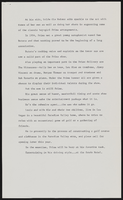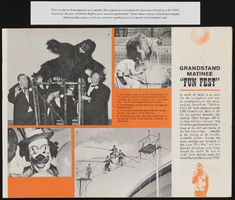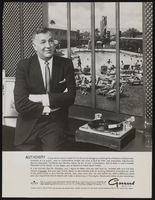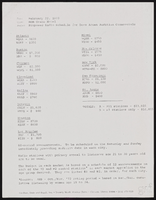Search the Special Collections and Archives Portal
Search Results
Bryan Chan oral history interview
Identifier
Abstract
Oral history interview with Bryan Chan conducted by Vanessa Concepcion, Cecilia Winchell, and Stefani Evans on October 18, 2021 for Reflections: The Las Vegas Asian American and Pacific Islander Oral History Project.
Bryan Chan discusses his life growing up in California, his family's migration stories to the United States, and his education. He discusses his appearance on a reality television show which led to becoming a singer for boy band LMNT. Bryan talks about his entertainment career, including his move to Las Vegas to sing and host for the Chippendales show at the Rio Hotel and Casino. He also shares insight into his family's traditions and his favorite foods that his father and grandmother cooked.
Subjects discussed include: chain migration; Chippendales; giglife; virtual events; traditional foods.
Archival Collection
Rainier Spencer oral history interview
Identifier
Abstract
Oral history interview with Rainier Spencer conducted by Sarah Buckner on April 27, 2015 for the African Americans in Las Vegas: a Collaborative Oral History Project. In this interview, Spencer discusses his personal history and arriving to Las Vegas, Nevada in 1997. He talks about his experience as a professor at the University of Nevada, Las Vegas (UNLV) and his involvement regarding diversity issues at UNLV. Spencer then discusses the novel
Archival Collection








